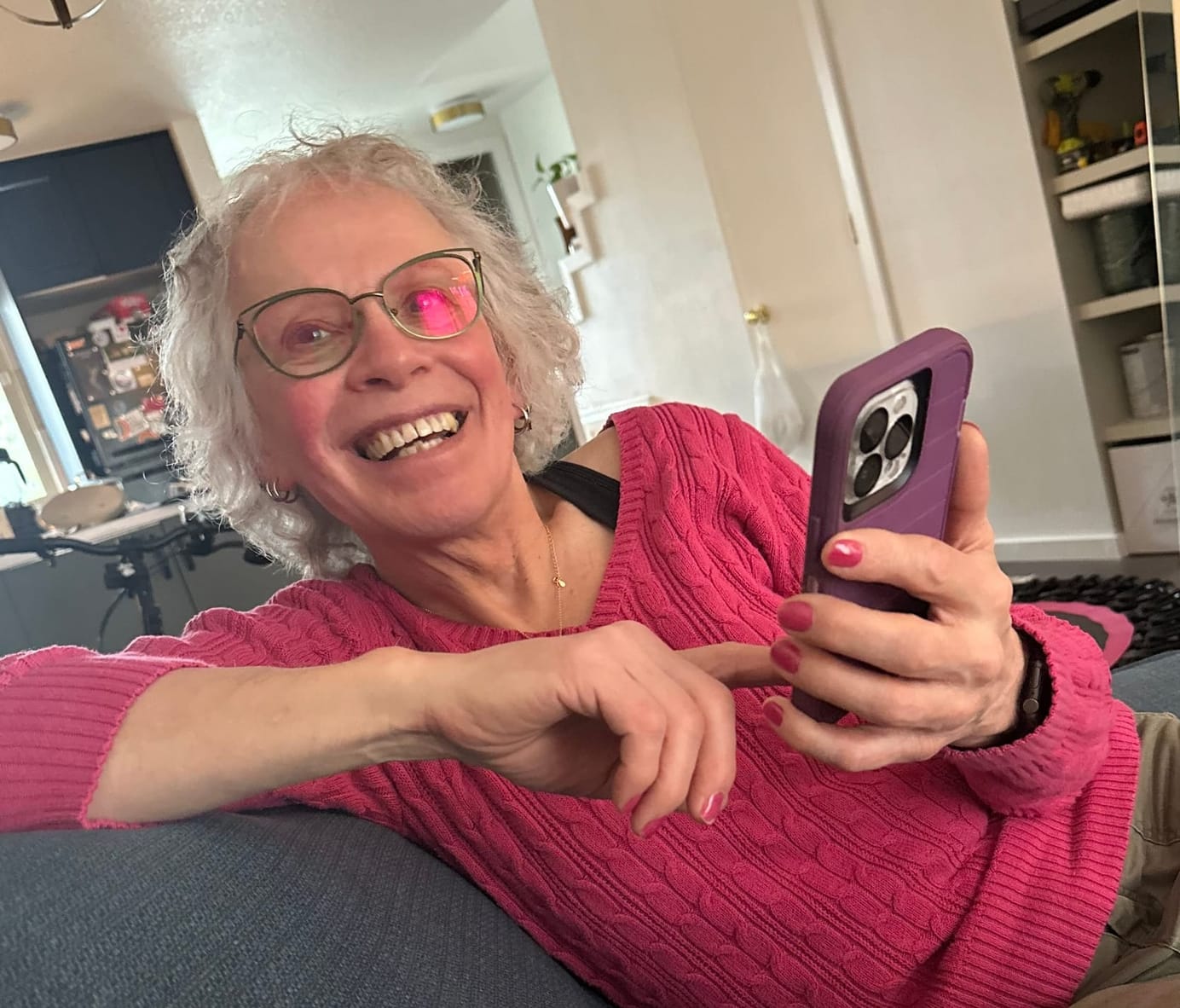Gender-Affirming Care Is Not a Panacea
Stress from dysphoria is only half our trouble

When I traveled to Thailand for gender-affirming surgery, I never expected the best part of returning to the United States would be taking a cold shower. But the cold reminds me of the most important lesson of gender transition: that no matter how far into the process I go, gender-affirming care cannot and will not solve all my life's problems.
I have little doubt at least one keyboard warrior is out there ready to type a response to gloat and say "I told you so." Comments on my YouTube videos documenting the process of gender-affirming surgery take an almost gleeful tone in attacking me. Some people can't wait to see my regret and detransition videos.
But - SPOILER ALERT - I have no regret and no intention of detransitioning. Gender-affirming surgery brought tremendous benefit - just like a cold shower. And also like a cold shower, gender-affirming surgery brought with it a dose of additional stress.
Stress: the bad and the OK
Stress seemed suddenly to explode in the media during the 1980s. Scientists considered a hunter / gatherer species that gains every modern convenience and more leisure time than ever before in its history.
Certainly, every human should be more relaxed than ever. If nothing else, isn't that what our science fiction books promised us? But observation showed humans felt awful, suffering from ulcers, anxiety, and burnout.
In parallel studies in exercise science, a foundational tenet is the need to stress the body in order to improve its performance. "No pain, no gain," as the meathead workout mantra goes.
Scientists claimed we must manage stress. In order to do so, they recommended regular exercise…in which we stress ourselves.
The dichotomy was counterintuitive - until the nuances became clear. Scientists defined three modes of stress. The two modes involved in the cycle of work, exercise, work are called "distress" and "hormetic stress."
Mitigating stress with stress
Distress occurs when we experience events we subjectively judge as "bad." It is the form stress typically takes, what we mean when we tell our family, friends, and employer we feel "stressed."
Distress leads to the symptoms above, and too much distress results in reduced performance and burnout. We don't like distress, because it wears us down over time.
A more recent concept - particularly in exercise science and psychology - is hormetic stress. Hormetic stress is a short-term acute stress. It causes physical symptoms similar to distress - elevated heart rate, faster respiration, body sweats - but unlike long-term chronic distress, we do not face burnout.
Hormetic stress entails taking on enough stress to tax our body and mind, but not enough to contribute to distress when administered judiciously.
On the contrary, hormetic stress mitigates the effects of distress. Mild discomfort forces us to respond - physically and psychologically - which adds enough stress to battle chronic distress.
But not only exercise can induce hormetic stress. Even stimulus such as a cold shower can mitigate chronic distress.
Taking a cold shower
At the beginning of 2024, I felt burned out, unsure what to do with my life. I had heard about cold showers as a method of self-care, which fascinated me. And - always up for a challenge - I read a book and took the plunge…so to speak.
To be clear, cold showers were not pleasant in the beginning. But within 30 days, I realized a cold shower left me laughing, feeling empowered, and ready to take on a dozen new challenges. I became hooked.
In Thailand - when I could have used the healing benefits after gender-affirming surgery - I could not turn the temperature of the shower down enough. I had to wait to return to the United States to indulge in the luxury of stressing myself with cold water.
It was in the warm glow of hormetic stress induced by a cold shower that I came to a significant insight about the path of my life. I followed a stream of consciousness from distress, to hormetic stress, to the third mode of stress, named eustress.
Too much of a good thing
In contrast to distress, eustress occurs when we experience events we subjectively judge as "good." But like distress, eustress can also cause reduced performance and burnout.
Discovering eustress could affect us the same way distress does surprised scientists. Good things make our lives better, don't they?
But consider winning the lottery after a decade of unemployment, struggling to maintain sufficient food and health care to survive. Suddenly, we need not worry about basic needs…but we find the struggle shifts.
Now we must pay taxes, we may find family and friends who become our biggest fans in hope of a payout, and we may need to hire a lawyer to deal with them both.
In the meantime, we are aware the money is finite. Someday, we may be in the same situation as we were before winning the lottery.
Out of context, winning the lottery appears to cure all ills. But in context, eustress teaches a valuable lesson: sometimes the pain of living without is no different from the pain of living with.
Two years of gender transition
I began gender transition 07 July 2022. By March 2023, I had completed my social transition, living as and presenting full-time as a woman. I felt great - for a while.
By August 2023, my transition had gone so well, I became suicidal - not because I felt regret, but because I discovered a deeper-seated pain in my psyche. Addressing some of the gender dysphoria in my life uncovered the unaddressed childhood trauma that had festered for 53 years.
I had too much of a good thing, and it was distressing! I thought I had taken care of all my bad parts! Now I had to deal with other bad parts as well?
Now that I have returned from Thailand, I find myself in a similar position of peace and centeredness. Gender-affirming surgery addressed a constant drain on my energy - a source of long-term chronic stress.
The parts alone caused distress through gender dysphoria. But shame about the parts and my desire to change them added to my worry. Finally, guilt and rumination on the parts, the shame, and the dysphoria rounded out the distress into a cocktail of long-term chronic stress I barely realized until it had faded.
Again, I am experiencing anxiety about what to do in the future. Surgery helped me reclaim energy I have devoted elsewhere for decades. What I feel today is not regret - not by a long shot.
What I feel is the eustress of a sudden alignment of my physicality with my knowledge of who I've known I am inside my whole life.
Just living
I look forward to the rest of my life - a position I never anticipated I would occupy. As we transgender people tend to put it, now all that is left is just to live.
But I find myself asking a very salient question. What does it mean - just live - to a person who is only now beginning to learn how to live?
What I discovered after gender-affirming surgery is nothing can prepare me to answer that question. Instead, I must learn to live, similar to any cisgender woman, although perhaps starting a bit later in life.
Gender-affirming care has had a life-altering effect on me. I have never experienced the sense of rightness in who I am - the stability in my self - that gender-affirming care has brought over the past two years.
But gender-affirming care does not and cannot solve life's problems. Only we can discover the answer to the questions that plague us.
What gender-affirming care does is free us - to whatever extent - from the long-term chronic stress of gender misalignment. As we shed the stress, we regain the energy necessary to begin to solve our life's problems on our own.
I look forward to the rest of my life.




